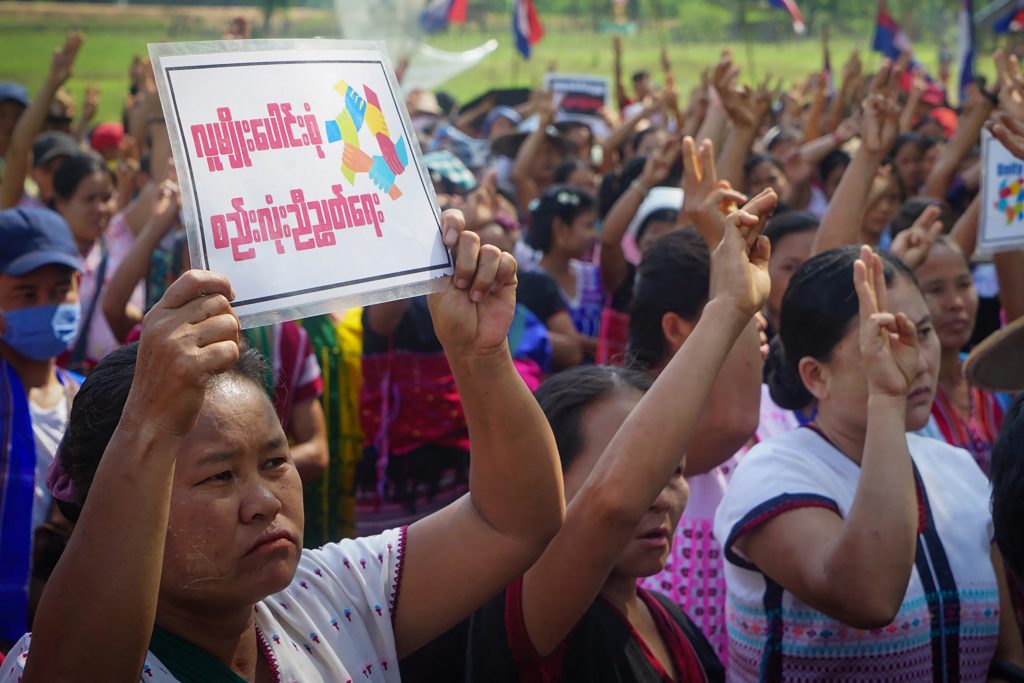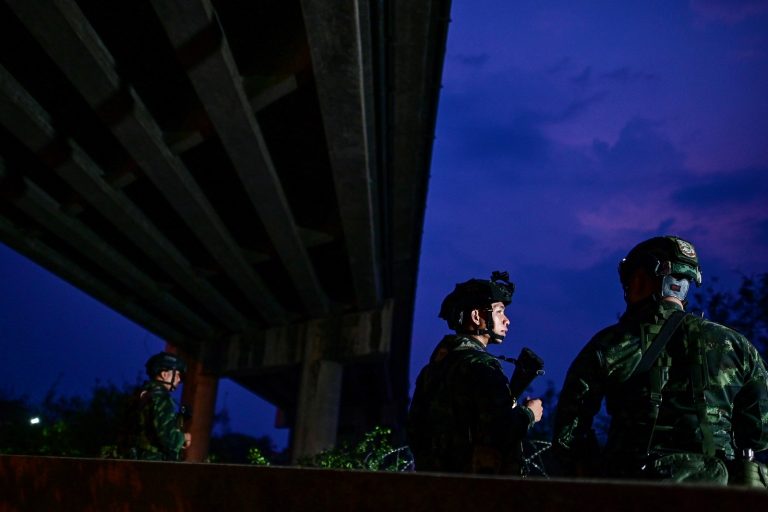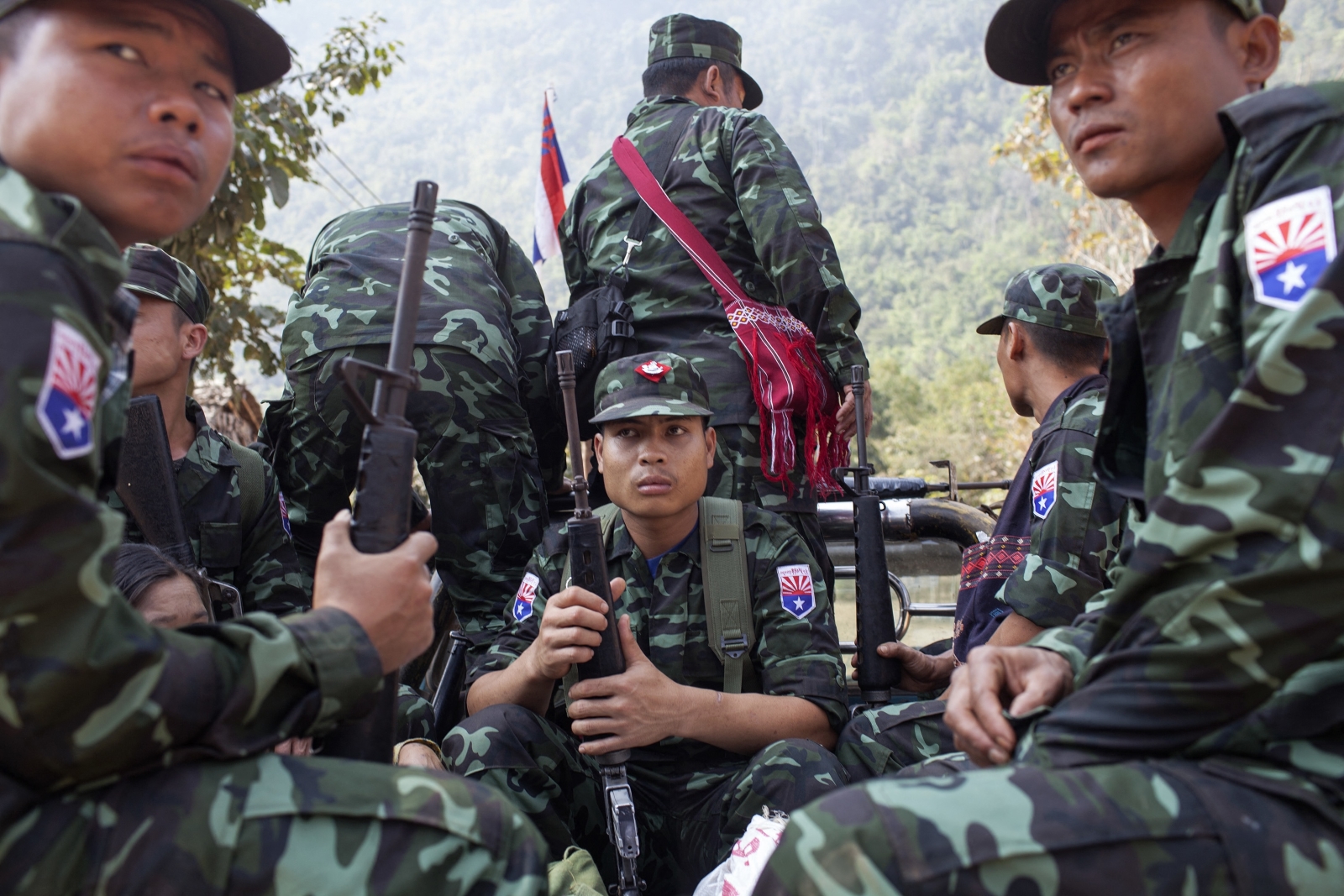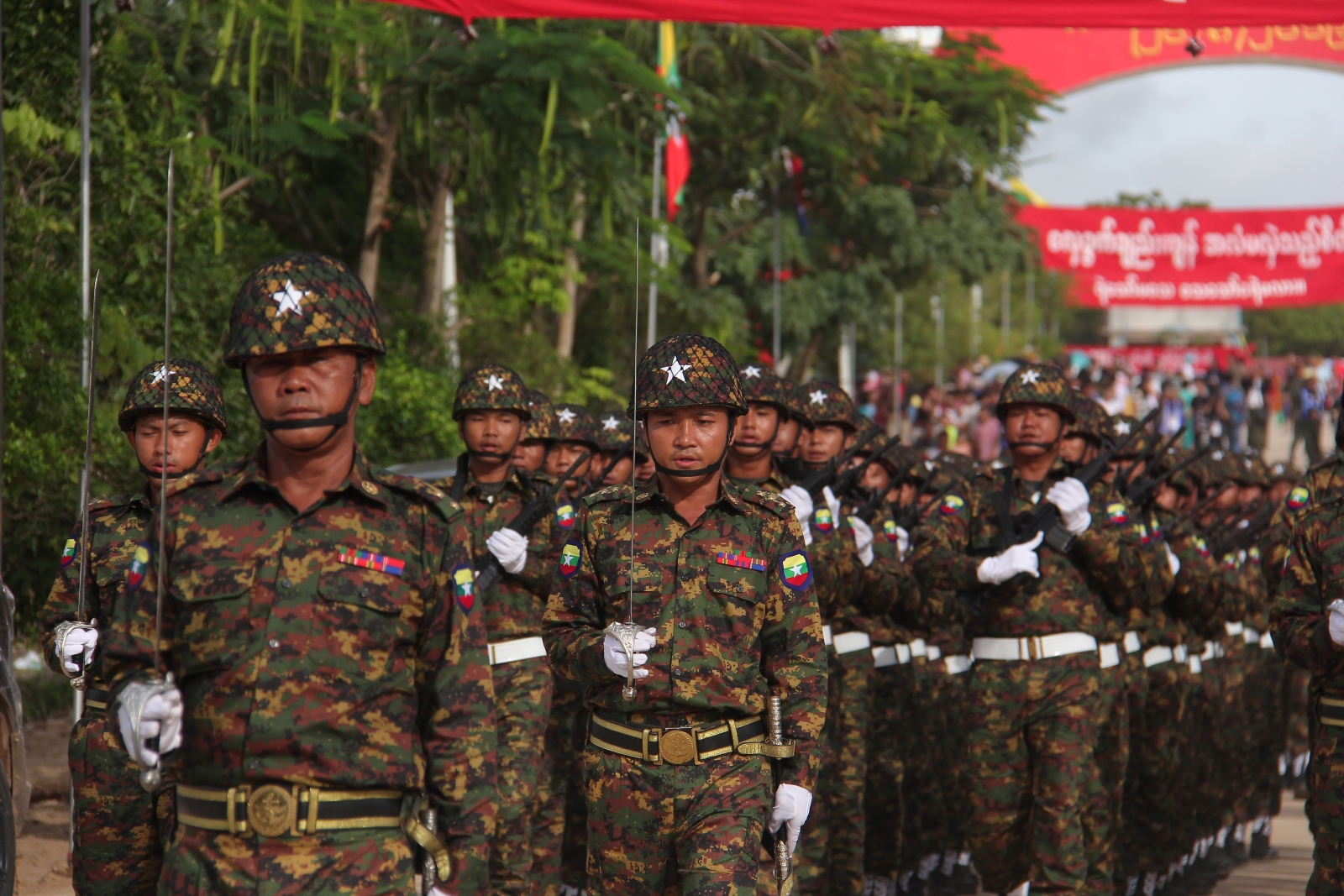The Karen National Union’s foreign affairs chief says only since the Tatmadaw’s brutal crackdowns on protesters are the majority of people changing their views about armed groups, and seeing them as partners and allies instead of “rebels”.
By FRONTIER
After a decade of relative peace, war is again erupting Myanmar’s eastern borderlands. Since the February 1 coup d’etat, hundreds of clashes have been reported between the Tatmadaw and the Karen National Union along the border with Thailand, leaving tens of thousands displaced. Although in some areas the fighting pre-dates the February 1 coup, the KNU has also been among the most vocal in criticising the military takeover, and has sheltered dissidents and provided combat training to young protesters. Frontier spoke to Padoh Saw Taw Nee, who heads the KNU’s Foreign Affairs Department, about these issues as well as the group’s overall view on the current crisis and the potential timeline for a proposed federal army.
What’s the latest update on the fighting with the Tatmadaw?
At the end of March, we released a statement saying that there had been nearly 200 clashes with the Tatmadaw since the coup … now the number may be over 250. Most of the fighting occurred with troops from our 3rd Brigade, 2nd Brigade and 5th Brigade. Later, the clashes extended to 4th Brigade and 6th Brigade and there are now very few places where clashes have not occurred. [On April 23 and 24], there were clashes near Thaton and Bilin [in Mon State]. If there are clashes, there will be consequences. They are not big battles – just engagements, usually if they trespass on our territory – so we call them small clashes or encounters.
The KNU is also sheltering a large number of IDPs, or internally displaced persons. Can you give a precise number?
There are different types of IDPs. One group consists of those who came to us after joining the Civil Disobedience Movement. There are also two other groups. The first are IDPs who fled battles that broke out after the Tatmadaw started building roads near the 5th Brigade in Hpapun [in Kayin State] and 3rd Brigade in Kyaukkyi [in Bago Region]. There are about 2,000 IDPs in Kyaukkyi and about 5,000 in Hpapun. They were displaced even before the coup took place.
The second group fled air strikes carried out by the military after the KNU captured the Thee Mu Hta camp on March 27. The military targeted civilians with those air strikes. The villagers had never experienced this before – they are the first air strikes in 25 years in Kayin State, since [former KNU headquarters] Manerplaw fell into the military’s hands [in early 1995].
The air strikes targeted civilians in villages. Schools and houses were destroyed and burnt down. The number of IDPs was in the tens of thousands. More than 3,000 crossed the Thanlwin River into Thailand, but they came back here because Thailand expelled them after just one day. The KNU issued a statement concerning more than 15,000 IDPs on April 2. But if we include those who have fled more recently, the number may be close to 30,000. This does not include the 7,000 people who were displaced before the coup.
There have been reports of the Tatmadaw targeting civilians in conflict-affected areas. How has the fighting affected civilians?
I do not have exact figures … but according to media reports many villagers have died. It’s not unusual for people to get killed when there are clashes but now the Tatmadaw has begun targeting Karen villages, which it didn’t do so much in the past. The things happening in the cities are also happening in the villages. The Bamar military has begun to target to civilians.
The Karen Border Guard Force, which was formed in 2010 from a group of breakaway KNU fighters, is part of the Tatmadaw, so what role has it played in the recent fighting?
The BGF normally helps the Tatmadaw when clashes break out. When clashes occur with our 5th, 6th and 7th brigades, the BGF forces come and fight on the front lines. We don’t have any clashes with the BGF in particular … The BGF is just under the command of the Bamar military.
There has been a great deal of discussion in recent months about the possible emergence of a federal army. What’s the KNU position on this?
Our ambition is to build a federal democracy. If a country is a federal democracy, its army will inevitably be a federal army. What else can it be? But a federal army can’t be built overnight. We have already been trying to achieve that goal for so long. We cooperated with other armed groups and we are still figuring out how to unite with those who have different histories, views and geographic locations. A federal army will come to existence when a federal democratic union has been built.
But at the same time, we cannot avoid the current situation. Our policy is that we are waging a defensive war for our people. But as we announced, we oppose the military coup and we support those who oppose dictatorship … the military is threatening the lives of people in cities and villages … [so] we cannot turn a blind eye to people’s right to self-protection.
Have you had any negotiations or cooperation with the National Unity Government?
We are going to have negotiations with the NUG soon, but at this stage we can’t say any more about it.
What can you tell us about the military training that the KNU is giving young people who have fled repression in the cities?
Most of [these young people] did not want to be violent, but [they] changed their minds when civilians living in the cities were brutally suppressed. When they are being abused, killed and oppressed by the military junta, young people are tempted to retaliate. That’s why many came to our side. The KNU does not encourage violence but they have the right to self-defence. We can’t stop enthusiastic young people from doing what they want to do.
We can’t say exactly how many young people came to join us. They arrived via various KNU brigades and we haven’t yet collated numbers. But most of them came to us through the 1st and 5th brigades.
We normally offer cadet training according to our policy. These trainings take several years. We also have medic and reserve reinforcement trainings that usually take about six months at least. But the newcomers are eager to learn and want to learn fast – they think our regular training is too time-consuming. They demanded that we provide short-term training.
Many people who oppose the military are expecting a lot from ethnic armed groups, including the KNU. What do you want to say to them?
First of all, I want to say that people in Myanmar have been totally brainwashed for so long that they didn’t know what was really happening. Even some of my friends thought of the KNU as rebels or bad guys. It was only after the military waged this brutal crackdown on people in cities that they changed their views about ethnic armed groups and ethnic people. I have to explain to them that the military has been doing similar things in ethnic areas for many years. I welcome such change of views.
I am happy to know that the people are putting their faith in the KNU, but we have our own policy. No matter what happens, we will continue to follow our policy set in 1956 – we will proceed slowly and steadily to reach a federal democracy. What we are doing now is just part of our policy and we will continue to try to achieve federal democracy, which is something that we all want.







